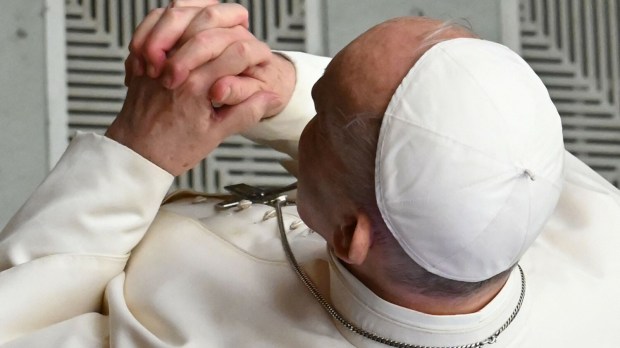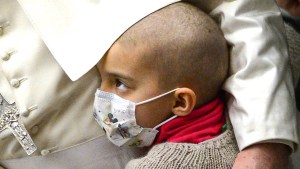Pope Francis assured his prayers for those affected by Hurricane Fiona, which hit several Caribbean territories, with gusts exceeding 200 km/h. In two telegrams released by the Vatican on September 21, 2022, addressed to the presidents of the episcopates of Puerto Rico and the Dominican Republic, and signed by Cardinal Secretary of State Pietro Parolin, the Pope expresses his closeness to the affected populations and invites them to solidarity.
In a first message addressed to Archbishop Freddy Antonio de Jesús Bretón Martínez, Archbishop of Santiago de Los Caballeros and President of the Episcopal Conference of the Dominican Republic, the Pope raises “his fervent prayer to the most merciful Father, begging him to grant consolation to the dear Dominican people.”
He asks “the entire Christian community and people of good will to support those who suffer from these adversities,” entrusting “the sons and daughters of the Dominican Republic to the loving and maternal hands of Our Lady of Altagracia,” the patron saint of this country.
In another message addressed to Bishop Rubén Antonio González Medina, bishop of Ponce and president of the episcopate of Puerto Rico, the Pope expressed his sorrow for the “regrettable loss of human life” and asked the Lord “to grant consolation to the dear Puerto Rican people, who are suffering from these grave misfortunes.” He entrusted the population of this territory to the intercession of Our Lady of Divine Providence, venerated on the island.
Guadeloupe, the Netherlands Antilles and Saints Kitts and Nevis have also been affected by the hurricane.
The Dominican Republic recorded significant damage around the tourist town of Punta Cana.
In Puerto Rico, Hurricane Fiona caused heavy rainfall, with a reading of 796 mm in the Puerto Rican city of Ponce. The material consequences were heavy, with a widespread power outage that affected Puerto Rico on September 18. The final number of casualties is not yet known, as in addition to the immediate effects, there may be casualties related to unsanitary conditions and infrastructure problems. In October 2017, 34 deaths had been attributed to Hurricane Maria, which devastated the island two weeks earlier, but the consideration of excess mortality led, several months later, to a reassessment of the death toll, raised to nearly 3,000.


